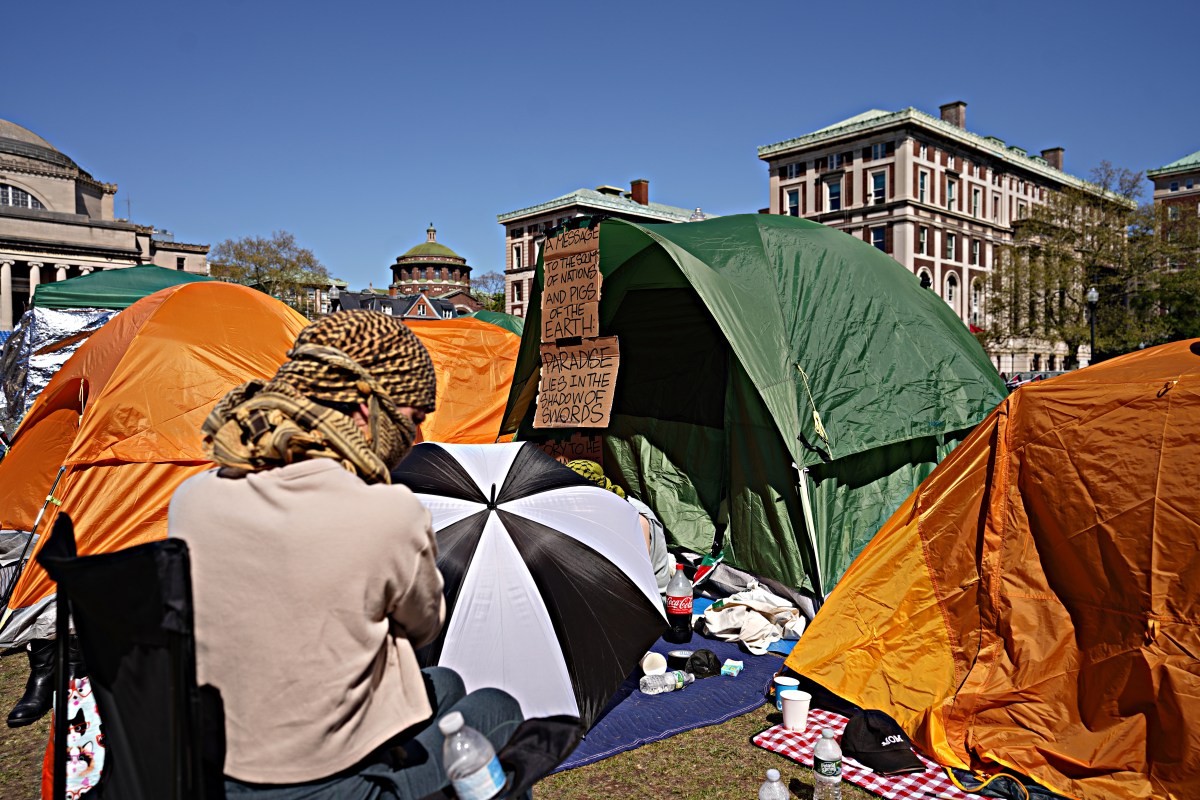For Mayor Michael Bloomberg, who heralds himself the education mayor, Thursday could prove crucial in the legacy he’ll leave behind.
Thursday is the deadline for the city and the United Federation of Teachers to reach an agreement on the terms for teacher evaluations. Implementing evaluations, which would make it easier to weed out underperforming teachers, has been one of Bloomberg’s most notable — and most scrutinized – ambitions.
The showdown could put more than $200 million in education funding at risk, and if the two sides can’t strike a deal, Governor Andrew Cuomo vowed he will step in and impose his own plan.
“It would be an awful blow,” said David Birdsell, dean of the Baruch College School of Public Affairs, of a potential stalemate. “It’s going to look bad for everybody. There would literally be a several hundred million dollar hole going forward for a couple years.”
In a controversial and unprecedented move, Bloomberg took over complete control of the city’s schools when he first came into office in 2001. Since then, in his ten years as mayor, Bloomberg has made good on several initiatives including expanding upon charter schools and a push for smaller, more focused, high schools.
“His having gotten mayoral authority is a great accomplishment,” said former Mayor Ed Koch. Whether he has maximized that in a positive way… I think the jury is still out.”
He’s received criticism for his lack of inclusion of parents in policy making. But his most lasting impressions will likely hinge on student performance – test scores are a frequent subject of debate on whether city students show progress.
“Obviously he sought and got a third term because one of his arguments for taking it was unfinished business… one of the areas was education,” said Bruce Berg, professor of political science at Fordham University. “In order for the mayor at the end of his third term to claim mission accomplished, he’s going to need much more conclusive evidence of improvements in school test scores, than he has up to this point achieved.”
What’s next for Bloomberg?
Will Mayor Bloomberg run for president? It’s a question he’s answered time after time with an overwhelming “no.” No New York City mayor has ever gone on to become president, though their names frequently swirl in the realm of speculation. In fact, the highest office obtained by a former city mayor is governor – John T. Hoffman was elected in 1869 after two years as mayor.
If Bloomberg has political aspirations beyond his time as mayor, he doesn’t have a lot of options – at least not right away, political experts say. New York Senators Kirsten Gillibrand and Charles Schumer, both Democrats, are up for reelection in 2012 and 2016 respectively, though they’re both well ensconced in their seats. Democratic Governor Andrew Cuomo will likely seek another term in 2014. Bloomberg, a perpetual boss, would likely set his sights on a higher office anyway, say political watchers.
“He isn’t going to challenge Cuomo, but there is no other job that is big enough for Bloomberg,” Birdsell said. “It is unlikely that he is going to have a straight shot at presidency in his 70s. He would be the oldest candidate to run for a first term should he be contemplating 2016.”
Bloomberg, who turned 70 on Tuesday, would likely have to fight to stay relevant in the time between his last mayoral term and the next major election, said some.
“The mayor of New York City, in some ways, probably gets more press attention than anybody except president,” Bruce Berg said. “He has a national name, but he is going to have to push to keep that name in public’s radar.”
Former New York Mayor Ed Koch said Bloomberg may not run for another office, but he could prove to be a attractive candidate for a different type of job in the public sector.
“I could see him appointed to head of the World Bank or Secretary of Treasury,” Koch said.
Though he repeatedly denies any intention of seeking another post, Bloomberg likely knows it would be unwise to voice future political ambitions while he is still mayor.
“He wants to be concerned about his legacy as mayor of NYC,” Berg noted. “If he has those aspirations, he should keep that quiet.”
Making NYC healthier: It’s about the ‘little things’
Last year, Bloomberg signed a law that extended New York City’s smoking ban to parks, beaches, and public plazas. In 2010, he introduced the restaurant letter grade system, which requires eateries to display an A, B, or C in their window after inspections. Other feathers in his cap include a trans-fat ban and calorie charts posted in fast food restaurants.
And many would argue some of his public health initiatives are working: Adult smoking has declined nearly 30 percent in the since 2002, the year Bloomberg implemented a city-wide smoking ban in bars and restaurants, according to the Dept. of Health.
While these changes are primarily convenience-based for New Yorkers, they’re also likely to be the “little things” that voters remember — either in a positive or a negative light, said Birdsell.
“With these kinds of health orientations, there is a push-pull,” said Birdsell. “When he is riding high, people will remember the benefits. When he’s riding low, people will think of it as the nanny state meddling in their lives.”
Applied Sciences Campus: An ongoing legacy
It’s a project that is predicted to bring 8,000 permanent jobs to the city. The applied sciences campus is considered one of Mayor Bloomberg’s most ambitious endeavors. Cornell University and Technion Israel Institute of Technology were chosen in December by a city appointed board to build the campus, which will offer degrees in engineering, computer sciences and many other tech related fields.
Slated for the Goldwater Hospital site on Roosevelt Island, its location in the choppy East River makes it a massive construction undertaking and one that Bloomberg has aggressively set to begin this year.
“This is a huge contribution that is going to be very visible and his administration will be working hard to ensure it gets unalterably underway,” said David Birdsell.
Expected to be finished in 2017, the campus will still be under construction long after Bloomberg is out of office. His involvement will likely extend beyond his tenure as mayor.
“I think the one thing we can confidently predict is that he will be personally involved after his time in office to ensure that it is optimally attractive,” Birdsell added.
Follow Cassandra Garrison on Twitter @cassieatmetro
















